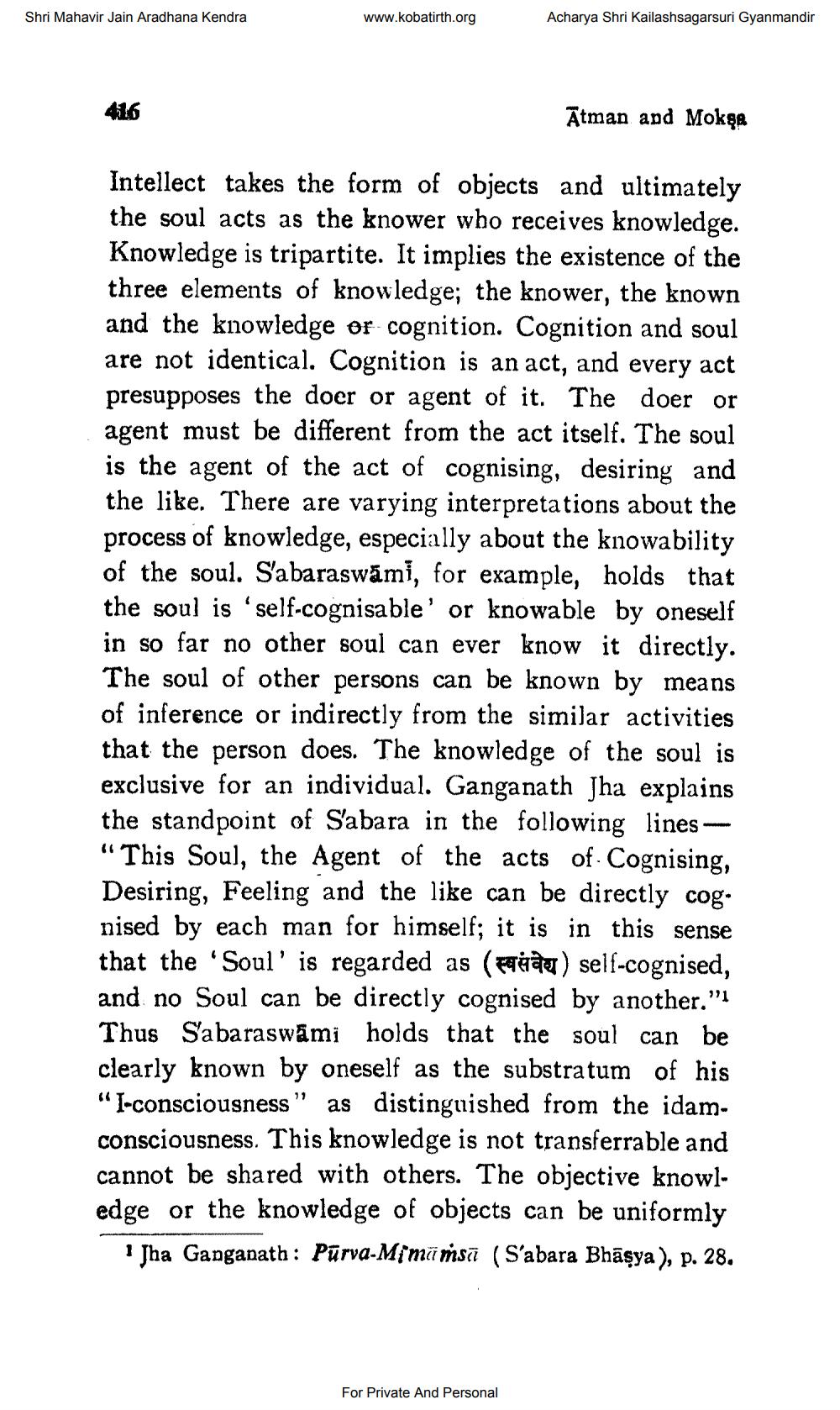________________
Shri Mahavir Jain Aradhana Kendra
www.kobatirth.org
Acharya Shri Kailashsagarsuri Gyanmandir
4116
Atman and Mokyo
Intellect takes the form of objects and ultimately the soul acts as the knower who receives knowledge. Knowledge is tripartite. It implies the existence of the three elements of knowledge; the knower, the known and the knowledge or cognition. Cognition and soul are not identical. Cognition is an act, and every act presupposes the doer or agent of it. The doer or agent must be different from the act itself. The soul is the agent of the act of cognising, desiring and the like. There are varying interpretations about the process of knowledge, especially about the knowability of the soul. Sabaraswāmi, for example, holds that the soul is 'self-cognisable' or knowable by oneself in so far no other soul can ever know it directly. The soul of other persons can be known by means of inference or indirectly from the similar activities that the person does. The knowledge of the soul is exclusive for an individual. Ganganath Jha explains the standpoint of Sabara in the following lines - “This Soul, the Agent of the acts of Cognising, Desiring, Feeling and the like can be directly cog. nised by each man for himself; it is in this sense that the 'Soul' is regarded as (privat) self-cognised, and no Soul can be directly cognised by another.”! Thus Sabaraswāmi holds that the soul can be clearly known by oneself as the substratum of his “I-consciousness” as distinguished from the idamconsciousness. This knowledge is not transferrable and cannot be shared with others. The objective knowledge or the knowledge of objects can be uniformly
1 Jha Ganganath: Pūrva-Mimāṁsā (S'abara Bhāşya), p. 28.
For Private And Personal




